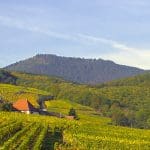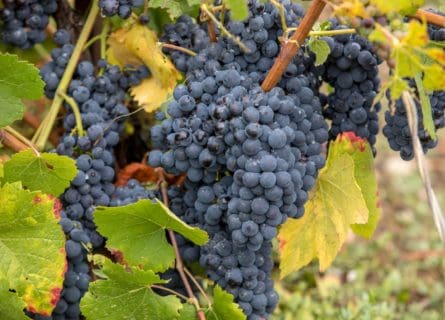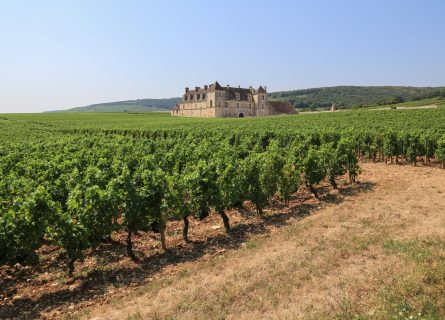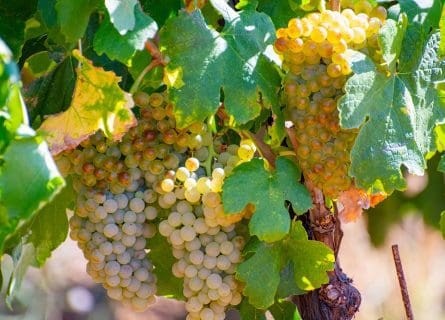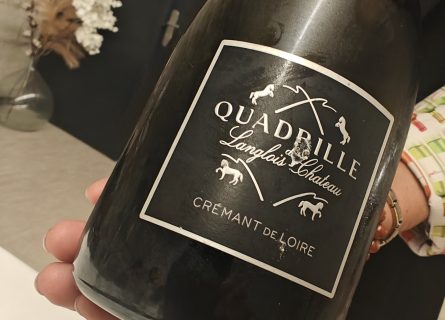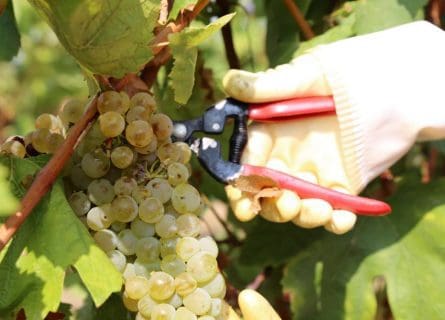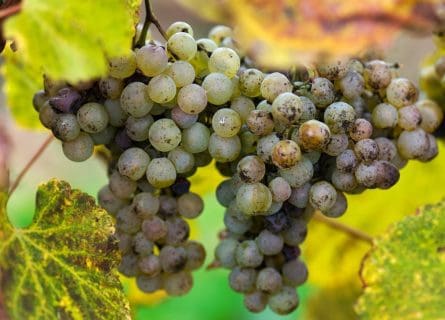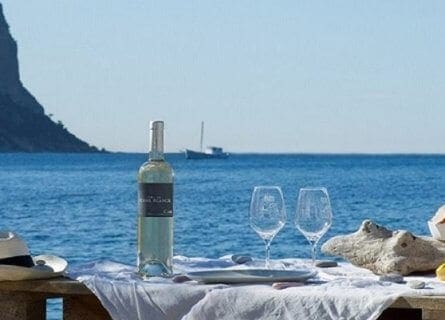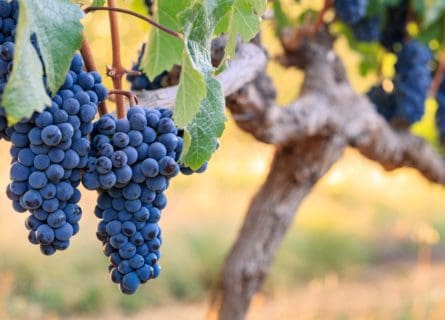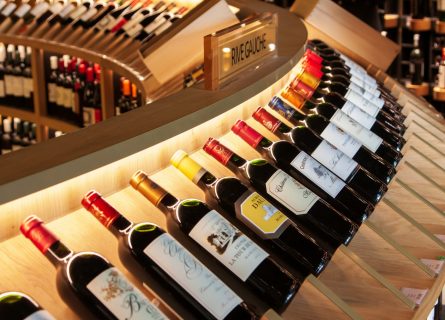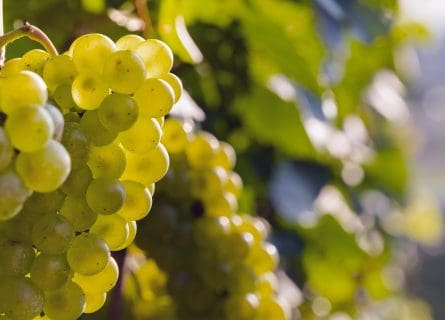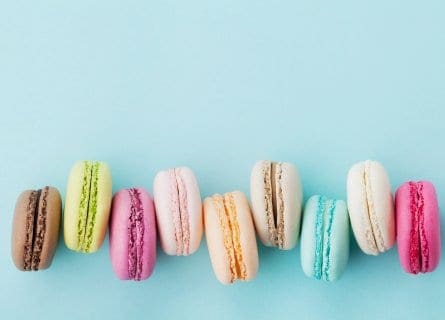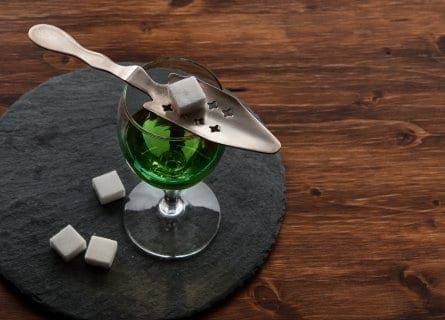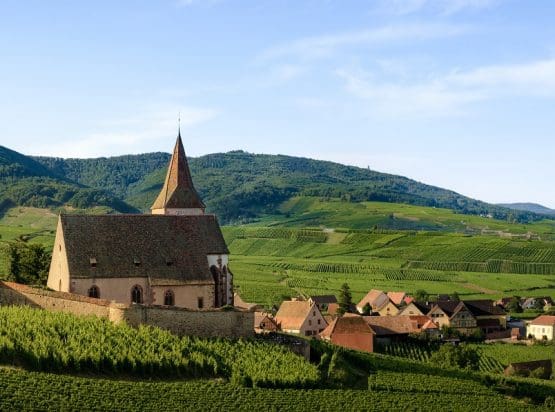
Hugel & Fils Winery Guide
EXPLORE ALL OUR RECOMMENDED FRENCH WINERIES
Last updated: November 24, 2023
Winery Overview
The Hugel family are quite possibly the most influential winemakers in the Alsace region today. 13 generations of this remarkable dynasty have been inexorably linked with the region’s development and prosperity; patriarch Jean Hugel was instrumental in creating the guidelines for late-harvest and botrytis sweet wine production in Alsace in the 1980s. Indeed, Jean was a powerful and influential figure in an influential family: wine writer Tom Stevenson described Jean Hugel as “the single most important person in the development of Alsace’s wine industry throughout the 20th century.”
The first member of the Hugel family to settle in Alsace was Swiss national Hans Ulrich Hugel, who arrived during the Thirty Years’ War (1618-48) and decided to make a new life in the region. Settling in the town of Riquewihr – today one of Alsace’s prettiest – he soon integrated himself into the town’s community. In 1939 Hugel was made a freeman of the city and soon took charge of the significant Corporation of Winegrowers. The origins of the company’s logo date back to this period: in 1672, Hugel’s son built a grand townhouse in the street of Rue des Cordiers, which bore a family crest still in use today.
Over the centuries, Hugel’s winemaking operation continued to prosper, despite the numerous wars and conflicts that ravaged Europe from the 18th to the 20th centuries. By the early 20th century, the current owner, Frédéric Emile Hugel, decided it was time for a shakeup. He left the old family property and established new premises in the center of Riquewihr, which still forms the heart of the family business. Nevertheless, there were tough times ahead. Phylloxera and the 1st World War devastated the region of Alsace. The conflict destroyed many of the vineyard sites, yet Frédéric Hugel refused to give up. Battling on, he fought to save what was left of Alsace’s viticultural heritage and worked with a group of farsighted winemakers to drag the region back into the light. The 1919 Treaty of Versailles returned the region to French control so they could rebuild their livelihoods.
Frédéric Hugel’s son and grandson, both named Jean, were no less the pioneers. Grandson Jean Hugel’s expertise was vital to establishing a superior designation for Alsace wines – Alsace Grand Cru – in the 1970s. The intrepid winemaker trampled all over Alsace’s soil with a geologist for three years, examining where the vineyard boundaries should go and that crucial separation point between spectacular, good, and ordinary. The designation has been updated three times: in 1983, 1992, and 2007 the list of Grand Cru vineyards was expanded. Among them is Schonenbourg, a hillside vineyard that is today responsible for producing some of Alsace’s finest Riesling.
In 2015, Hugel achieved yet another milestone. The launch of the single-vineyard Riesling “Schoelhammer” caused quite a stir in wine circles; 30 rows of vines at the heart of the Schonenbourg hillside are responsible for producing a Riesling that almost defies words. Only 4,288 bottles were made of this spectacular wine, a Riesling with an incredible structure, pervasiveness, and mineral tension. A wine that delivers pleasure now but begs to be cellared to allow the full complexity to reveal itself.
This is the quintessential hallmark of Hugel’s range of wines. On the one hand, structured, mineral, and dry, they also boast a lovely ‘come-hither’ quality, balanced by purity and concentration of fruit expression rarely seen, even in Alsace. Cultivating the highly sought-after “Schoelhammer” vineyard has given this family unparalleled insights into producing world-class Riesling. At the same time, the whole portfolio – including a beautifully scented Pinot Noir – continues to shine. However, Riesling is the real reason why sommeliers and critics salivate over Hugel’s latest releases. Hugel arguably makes the finest white wine in Alsace – many would say the world.
Wines produced
-
Riesling Classic 2017
100% Riesling. Sourced from 12 plots surrounding Riquewihr. After pressing, the must is decanted for a few hours, then fermented in temperature-controlled barrels or vats (at 18 to 24°C). The wine is racked just once, before natural clarification during the course of the winter. The following spring, the wine is lightly filtered just before bottling, and the bottles are then aged in the Hugel cellars until their commercial release. -
Riesling Estate 2015
100% Riesling. Sourced from estate vineyards – mostly from the Grand Cru Schoenenbourg vineyard. After pressing, the must is decanted for a few hours, then fermented in temperature-controlled barrels or vats (at 18 to 24°C). The wine is racked just once, before natural clarification during the course of the winter. The following spring, the wine is lightly filtered just before bottling, and the bottles are then aged in the Hugel cellars until their commercial release. -
Pinot Blanc Classic 2017
100% Pinot Blanc. After pressing, the must is decanted for a few hours, then fermented in temperature-controlled barrels or vats (at 18 to 24°C). The wine is racked just once, before natural clarification during the course of the winter. The following spring, the wine is lightly filtered just before bottling, and the bottles are then aged in the Hugel cellars until their commercial release. -
Pinot Noir Classic 2016
100% Pinot Noir. Fermented in temperature-controlled barrels or vats. After malolactic fermentation, the wine is matured in vats until it is bottled in early summer the following year. The bottles are then aged in the Hugel cellars until their commercial release. -
Pinot Gris Estate 2015
100% Pinot Gris. Part of the wine is fermented in temperature-controlled vats, another percentage (around 30%) is fermented in six to ten wine Burgundy barrels. After a single racking, the wine is then lightly filtered in spring before bottling. The bottles are then aged in the Hugel cellars until their commercial release. -
Riesling Grossi Laue 2013
100% Riesling. Produced from Grand Cru grapes, , the must is decanted for a few hours, then fermented in temperature-controlled vats (at 18 to 24°C). The wine is racked just once, before natural clarification during the course of the winter. The following spring, the wine is lightly filtered just before bottling, and the bottles are then aged in the Hugel cellars until their commercial release. -
Schoelhammer 2009
100% Riesling, sourced from the exceptional single vineyard in the heart of the Schonenbourg Grand Cru climat. After pressing, the must is decanted for a few hours, then fermented in temperature-controlled vats (at 18°C). The wine is racked just once, before natural clarification during the course of the winter. The following spring, the wine is lightly filtered just before bottling, and the bottles are then aged in the Hugel cellars until their commercial release. Limited production, this wine is suitable for extended cellaring. -
Riesling Vendage Tardive 2012
100% Riesling. Produced in exceptional years from a selection of over-ripened grapes sourced from their Grand Cru vineyard. After pressing, the must is decanted for a few hours, then fermented in temperature-controlled barrels or vats (at 18 to 24°C). The wine is racked just once, before natural clarification during the course of the winter. The following spring, the wine is lightly filtered just before bottling, and the bottles are then aged in the Hugel cellars until their commercial release. Limited production, this wine is suitable for extended cellaring. A dessert wine style -
Riesling Selection de Grains Nobles 2010
100% Riesling. Produced in exceptional years from a selection of over-ripened grapes sourced from their Grand Cru vineyard. After pressing, the must is decanted for a few hours, then fermented in temperature-controlled barrels or vats (at 18 to 24°C). The wine is racked just once, before natural clarification during the course of the winter. The following spring, the wine is lightly filtered just before bottling, and the bottles are then aged in the Hugel cellars until their commercial release. Limited production, this wine is suitable for extended cellaring. A dessert wine style.
Winery Contact Details
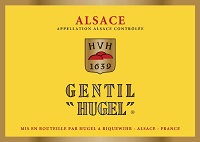
Hugel & Fils
3, rue de la premiere armee68340, Riquewihr
France
Email: [email protected]
Tel +33 (0) 3 89 47 92 15
Fax +33 (0) 3 89 49 00 10 Find out more
Facts & Figures
Appellation
Alsace
Founded
1639
Area under Vine
30 hectares of estate vineyards
Age of vines
Oak barrel origin
French - Quercus robur and Quercus petraea
Winemaker
Marc Hugel
Owner
Hugel Family
Production
1 million bottles per annum
Grape varietals
Riesling, Pinot Gris, Pinot Noir, Gewürztraminer, Muscat, Pinot Blanc and Sylvaner
Grape Varieties Used by the Winery
-
Gewürztraminer
Explore Gewurztraminer, a highly aromatic white grape from Alsace, France. Savor its unique character and allure in every sip
Find out more -
Muscat
Muscat blanc is a white wine grape varietal popular in the Muscat d'Alsace, Moscato d'Asti and Beaumes-de-Venise regions.
Find out more -
Pinot Blanc
Pinot blanc is a white wine grape varietal, that is a mutation of Pinot noir grape. It is planted in mostly Alsace, Germany and Northern Italy.
Find out more -
Pinot Gris
Pinot Gris is a white-wine grape variety originally from Burgundy. It is thought to be a mutant clone of Pinot Noir.
Find out more -
Riesling
Discover Riesling's charm, a white grape from Germany's Rhine region, cherished in Alsace, France. Unveil its secrets and delights
Find out more -
Sylvaner
The Sylvaner grape is a white wine grape variety with a rich history in Central Europe, particularly in Alsace and Germany. Known for its crisp and refreshing wines, Sylvaner exhibits flavors of green apple, citrus, and stone fruits, accompanied by floral and herbal notes. It thrives in cooler climates and is adaptable to various terroirs
-
Pinot Noir
Burgundy Cuisine Unveiled: Explore the essence of French flavors through regional classics and wine-infused delights. Your culinary adventure begins now!
Find out more
Winery Appellations
-
 Discover Alsace, the unique French vineyard blending French elegance & Germanic charm. Home to signature Riesling and scenic villages. Plan your trip today! Read more
Discover Alsace, the unique French vineyard blending French elegance & Germanic charm. Home to signature Riesling and scenic villages. Plan your trip today! Read more
Further Reading: Discover More Related Blog Content
More information
If you would like us to customize an exclusive luxury tour, contact us and let us know your travel plans. We offer luxury food and wine tours for private groups of a minimum two guests. In addition, all of our private, chauffeured tours are available year-round upon request.

